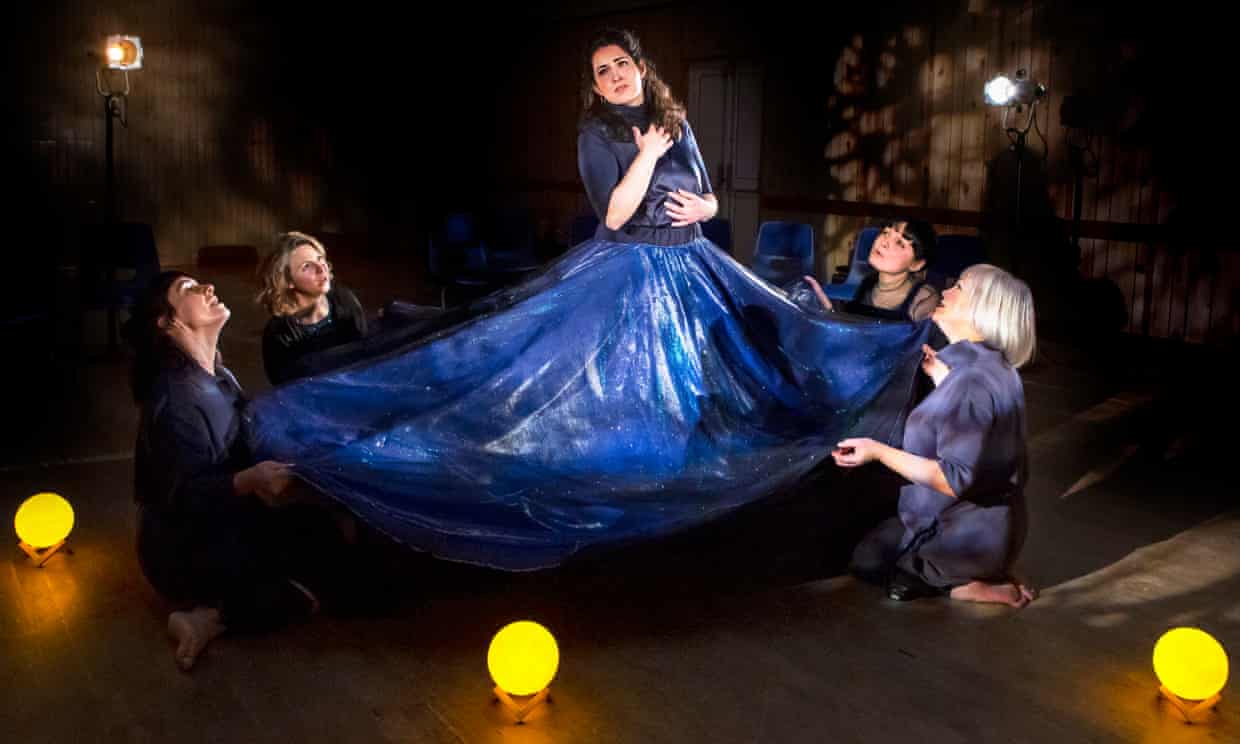
Theatre
Move~Gluasad review – a play about death driven by the pulse of life
Uig Community Centre, Isle of Lewis
Julia Taudevin’s show about the Gaelic tradition of singing for the dead takes us on a dizzying spin through space and time
by Mark FisherIt’s based on keening rituals, the ancient Gaelic tradition of singing for the dead, but Julia Taudevin’s Move~Gluasad is driven less by grief than by the pulse of life. Where many shows about mourning become inert, trapped by an emotion that has no release, this one seems to see death as part of a cycle, both end point and new beginning; sad, horrific, terrifying, yes, but also as inevitable as the ebb and flow of the sea.
The luminous moons cradled by the five performers seem to set the show’s tidal rhythm. It’s as if their gravitational pull is governing the women’s gorgeous singing, which belongs in some otherworldly place of raw emotion, just as it does the fluid form of Taudevin’s script.
In this debut production for Disaster Plan, the company she set up with partner Kieran Hurley, the playwright draws us into a whirlpool of global connections. It begins here on the Isle of Lewis, where a woman prepares to scatter the ashes she has kept in an ironically named bag for life. From there, it takes a dizzying spin through space and time: to the streets of Glasgow where a Colombian exile mourns the grandson she lost at sea, to western Sudan where a UN worker witnesses a bloodbath, to Australia where a Gaelic speaker’s final words are not understood, and to a Greek island where a rescued baby represents the possibility of renewal.
Performed in the round, the play washes about us like the incoming tide. Taudevin, who co-directs with Caitlin Skinner, is joined on stage by Mairi Morrison, Nerea Bello, Maryam Hamidi and Neshla Caplan, protagonists one minute, chorus the next. Morphing from Gaelic to gospel, the music recognises the pain, the guilt and the helplessness of death, even as it seeks to purge those emotions.
On a tour of village halls before its appearance in Glasgow’s Celtic Connections, it is a production at once rooted and outward looking, unsentimental and sincere, with a sound, if not to die for, then at the very least to be reborn to.
Touring until 2 February.